|
3/22/2018 Why we need public election fundsYou wouldn’t expect Pizza Hut to pay for a McDonald’s hiring event. So why do voters expect special interest groups to pay for the longest and most important job interviews: candidates for elected office?Opinion Piece by Cristi Demnowicz, RepMD Chair 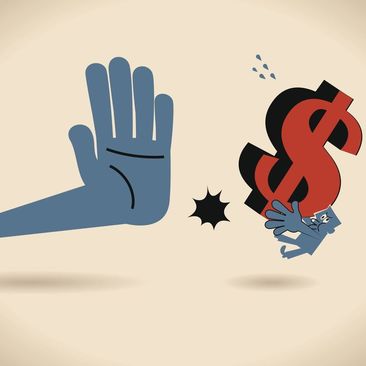 Lately, there has been a lot of talk about running government like a business. If so, we the people are both the “employers” and “clients” of anyone who finds themselves in the role of an elected lawmaker. But when a candidate “applies” for this job, we the people do little to support them. Most voters do not feel that it’s their responsibility to do so, or worse, that government is something that happens “over there”, away from their daily life. Nothing could be further from the truth. Beyond declaring important principles of the new Country of the United States, our founding fathers were not very forward thinking. They did not create any guidelines on how our candidatorial system would be funded. Why would they? To qualify for elected office, you had to be a white male landowner, which implied wealth and the ability to cover your own expenses. For years after, both elections and the voter base stayed small (white males only) and candidates didn’t need to cover a lot of geographic space to win enough votes. There was no such thing as TV or internet ads and getting press coverage was much simpler. Unfortunately this is no longer the case. In fact, a number of 2016 elections cost more than the GDP of some small countries. As elections tactics have changed, they’ve outgrown the expectations of our countries founders, so lawmakers, the two main parties, and political power players have been making solutions up as they go. Passage of the Civil Service Reform Act in 1883 established that positions within the federal government should be awarded on the basis of merit instead of political affiliation and prohibited compulsory contributions from job appointees to the political party that got them their job. However, as an unexpected consequence, the Democratic and Republican parties, who took over funding campaigns after the civil war, no longer had the guaranteed income to do so. This opened the door for corporations, special interest groups and wealthy individuals to fill the void. In a world where money is as important above all else, it’s perfectly natural for someone who spends a lot on a campaign to expect special considerations in return. In the years following, a lot was done to regulate how much and how often “big money” and special interest groups could donate to candidates, including passing the Tillman Act in 1901 and the Bipartisan Campaign Reform Act in 2002. The former never applied to Maryland and the latter was later gutted in a number of Supreme Court cases including McConnell V FEC and Citizens United V FEC. Now, almost all winning candidate campaigns are funded by specific types big money groups: corporations or corporate PACS, private foundations & non profits, and unions & professional associations (both are bundlers). And these groups have found creative ways to bypass any remaining campaign finance laws including creating shell corporations to funnel dark money and relying on superPACs, which have no contribution limits, to do the bulk of the work. What’s worse, there is a lawsuit in the pipeline to SCOTUS that would eliminate campaign contribution limits entirely. If decided in favor of the plaintiff, and without a different option for candidates who truly want to represent the people, the decision would be the last nail in the coffin for regular people being considered when making public policy. If we the people are both the clients and employers of elected officials, then WE must be the ones to pay for their campaigns. Public Election Funds are the solution. These funds will have positive monetary and symbolic consequences on democracy. Because they are required to collect a certain number of small donations in order to qualify for matching funds, candidates will spend more time doing creative grassroots campaigning, instead of pandering to big money groups. This will lead to more transparency and a better rapport between voters and elected officials. By deciding to use the pubic fund, candidates telling voters that they’ll work for them, not special interests. Maryland must pass statewide public election funds for all state and local elected offices. It’s the best way for our current leadership to do what our founding fathers didn’t: ensure democracy for future generations. 3/13/2018 Small Money Certification Criteria-2018Represent Maryland Small Money Commission and Criteria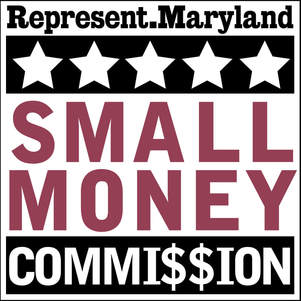 Represent Maryland volunteers have formed a "Small Money Commission" to certify candidates for public office who meet our small money criteria. The influence of "big money" which includes contributions from corporations, corporate PACs, foundations and non profits, unions* and industry associations*, lobbyists and lobbying firms, party PACs*, leadership PACs* and Slate PACs*, has taken over our political process, to the point that if a candidate cannot secure these types of donations, they are very unlikely to win their race. Montgomery County MD has taken steps to remedy this problem by establishing county wide public election funds that include matching funds for candidate who "prove" their ability to connect with voters at the grassroots level by collecting at least 250 individual donations of $150 or less. The Candidate must raise $20,000 before qualifying for three times matching funds (so raising at least $20,000 will earn them $60,000 from the fund for a total operating budget of $80,000). Represent Maryland strongly believes that public election funds are integral to restoring democracy and liberty in America, and therefore advocates for the expansion of this project across the state. All MoCo Candidates who opt in and qualify for the program will automatically be certified as "Small Money Candidates" by our commission. Candidate who do not have the option of receiving matching funds can qualify by meeting our criteria as outlined below. Because we know that it's incredibly hard to raise enough to be competitive by accepting individual donations only, we have allowed a number of organizational/PAC donations for this election cycle. As the public election fun program expands, and more candidates choose to use it, we hope to eliminate the need for this sort of certification all together. The RepMD Small Money Certification criteria disqualified any candidate for public office who takes contributions from the following: Registered Lobbyists, Federal or State Lobbying firms, Federal or State For Profit Corporations Corporate PACs Real Estate Firms and Developers We have also set a standard that all candidates should strive to raise at least 80% of the total number of contributions received from individuals and at least 60% of the total number received from individuals. Candidate should not receive more than 25% of their individual donations from outside the state of Maryland. We believe giving candidates these strong but reasonable guidelines will help them remember who they work for (all voters) and strengthen their dedication to working for the betterment of society as a whole, not special interests or for profit entities. *Bundlers See the full criteria below. You can also download a pdf below for reference. Candidates who would like to apply to be Small Money Certified can do so by clicking here. Certification requires that a candidate has filed at least one campaign finance report with the State Board of Elections. If a candidate has not yet filed, their certification research will begin after the next filing date. Incumbents, who have filed multiple reports with the SBE, will be researched for their most recent term. Incumbents who did not file the January 10 2018 report will be researched after the next filing deadline. If a candidate qualifies, they will be added to our website, under "Small Money Certified" candidates and be send our certification seal to add to their campaign materials as needed. Small Money Certification DOES NOT equal an endorsement by Represent Maryland. RepMD never endorses candidates for public office. 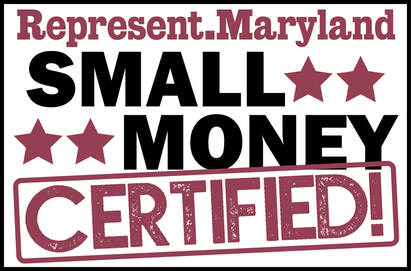 Represent Maryland’s Clean Money Commission Criteria for Certification Part 1: Super PACs Candidate will sign our pledge to not collude with superPACs*, as well as ask superPACs to not work on their behalf or against their opposition. Pledges will be shared through our social media and email channels. The candidate must also share this pledge through their website, social media and email channels. (*Collusion is already illegal, but candidates who believe in small money elections should be willing to publicly reinforce the law). Part 2: Small Money Commission Acceptable Campaign Contribution Sources Option 1-Public Campaign Funds If available in their district, candidate must elect to use public campaign funds, and if so follow their mandated guidelines. If a candidate uses this option and meets the criteria above, they will automatically be certified as a small money candidate. Option 2-Traditional Fundraising The following pertains to candidates with no public financing option available. Because we understand that it’s incredibly hard to run a successful campaign when only taking individual donations, the following criteria takes steps in the right direction while still allowing candidates to be competitive. As more public finance options become available, our criteria will become more strict. 1) Candidate will strive to collect at least 80% of their total number of contributions from individual donors 2) Candidate will strive to collect at least 60% of their total money collected from individual donors 3) Out of state individual donations should not exceed 25% of total money raise 4) Candidate will publicly disclose all bundlers working on their behalf, including union PACs 5) Incumbents or those seeking a higher office only:
Individual Donors
Non-accepted contribution sources and types-Incumbents and New Candidates For Profit Corporations/Corporate PACs
*Added in 4.13.2018
Review compiled by: Shalin M, RepMD Volunteer  1) Grassroots candidates tout small average contributions ABOUT: Good news - refusing PAC money and focusing on taking small donations is catching on! EXCERPT: "The 2018 cycle is seeing candidates taking up populist challenges to the big donor-backed frontrunners in both the Republican and Democratic Senate primaries. Paula Jean Swearengin is a challenger to Senator Joe Manchin in West Virginia’s Democratic primary. With Manchin, a familiar incumbent and former governor, outraising Swearengin 34-to-1, the race appears to be another “Charlie v. Goliath” match-up. However, her grassroots campaign strategy may be effective at garnering the support of working class West Virginians. According to Swearengin’s latest FEC filing, she raised $140,226 in 2017. If the average donor gave just $13 dollars as she claimed earlier this month, that would put her total number of contributions at about 10,800 — 1,193 greater than $200 and 9,006 less than or equal to $200. Austin Petersen, a Missouri Republican running for U.S. Senate, has not taken any money from business PACs. In October, he compared his fundraising with that of his main opponent Missouri Attorney General Josh Hawley. [...] Grassroots candidates that choose to run on small contributions have a tough election season in front of them as 2018 is expected to see record-setting campaign spending. Raising huge sums of money not only gives your campaign resources but is crucial to gaining recognition as a viable candidate by the main parties. For instance, in an investigation of how the Democratic Party selects candidates to support for Congress, The Intercept reported, “If the candidates’ contacts aren’t good for at least $250,000, or in some cases much more, they fail the test, and party support goes elsewhere.”" READ MORE: https://www.opensecrets.org/news/2018/02/grassroots-candidates-tout-small-average-contributions/ OUR THOUGHTS: This is good news and definitely something worth following through the election cycle. It's important to identify average total contribution per *unique* donor as some may contribute multiple times. Note that some candidates may be self-funding their campaigns with monies obtained in less than "above board" means. Nonetheless, let's hope that this trend continues - more "small money" candidates is a good thing for the values espoused by our Constitution. 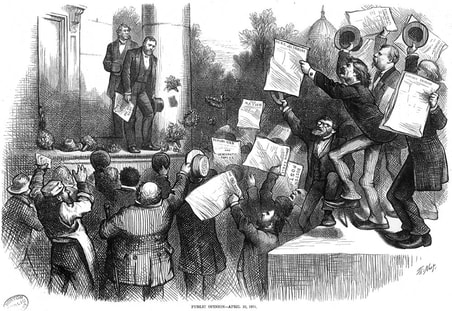 2) FEC leaders quarrel on digital advertising as midterms begin ABOUT: The FEC members are battling on how to reign-in internet based political advertising that would misinform voters, specifically "express advocacy". EXCERPT: "Last month, Weintraub publicly released details of her proposal that called for increased disclosure requirements for digital ads with “express advocacy” messaging — or ads that expressly tell audiences to vote for or against a specific candidate. “I’m very concerned about what happened in 2016, I’m very concerned about what could happen in 2018,” Weintraub said in an interview with OpenSecrets on Thursday. “This rulemaking is not going to solve that problem, but it will be a step in the right direction.” [...] The FEC proposal would only tackle “express advocacy” ads. Hunter said that the commission does not “have the authority to make it broader.” “This rulemaking is narrow,” Hunter said. “It’s only for ads placed on the internet for a fee and with express advocacy. It’s a very narrow subset of advertisements that we’re talking about. They have to directly advocate for the election or defeat of a federal candidate, which is express advocacy, and they have to be placed on another person’s site for a fee.” The role of the FEC in regulating online disclaimers for political advertising is a debate that’s stretched back years. The issue rose to the table most notably in 2011 when Facebook asked commissioners for an advisory opinion about whether to include disclaimers on their political ads; commissioners deadlocked in their decision." READ MORE: https://www.opensecrets.org/news/2018/03/fec-leaders-quarrel-on-digital-advertising-as-midterms-begin/ OUR THOUGHTS: The more transparency for the voter, the better. Although the likely direction is a "narrow rulemaking", this will be worth watching to find what is discovered and how the rules can further be tailored to improve the odds that voters will be better informed when they go to the polls. 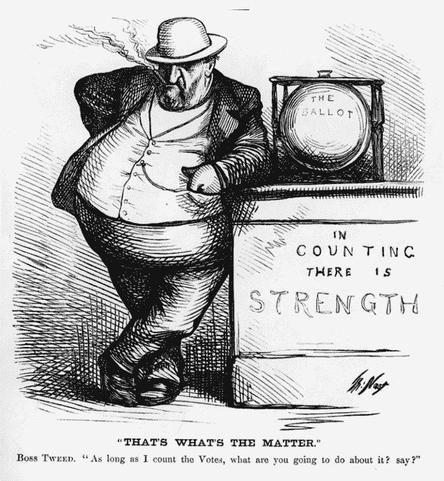 3) A cyclist’s widow asked a lawmaker why she opposed a distracted-driving bill. The answer: Spite. ABOUT: This is a story of an elected lawmaker insufficiently professional enough to represent their constituents...and it seems pretty sad, frustrating, and disgusting... EXCERPT: "The widow of a man killed by a distracted driver, Mary Carol Harsch, introduced herself to Georgia lawmaker Betty Price before entering an elevator with her on Thursday. She wanted to know why Price had voted against legislation that would double the fine for motorists who talk on the phone while they drive. Price’s answer shocked Harsch. “It’s a protest because they ignored my bill last year,” said Price, a Republican state representative. “I’m just causing trouble. I’m not philosophically opposed — I’m just mad.” [...] John Harsch was a founding physician at Southeastern Primary Care Specialists, and practiced medicine for more than 25 years, according to his obituary. He was an avid cyclist and soccer player. His widow told Channel 2 she was disappointed that Price, who has been a state representative since 2015, did not demonstrate the “leadership and the potential and the dedication that’s expected of you by your constituents.” Price, whose district includes parts of Atlanta’s northern suburbs, is a former anesthesiologist and is married to former U.S. health and human services secretary Tom Price." READ MORE: http://wapo.st/2BP9vgc OUR THOUGHTS: This sort of behavior is *not* at all what the public expects from their elected representatives and leaders. It is clearly a rather petty move for feeling scorned before and a sign that the Georgia lawmaker, and wife of former HHS Secretary Tom Price, simply cannot be counted on rising to the occasion. This is certainly not a good sign of money well spent in terms of her compensation and how the lawmaker may misuse campaign donations. 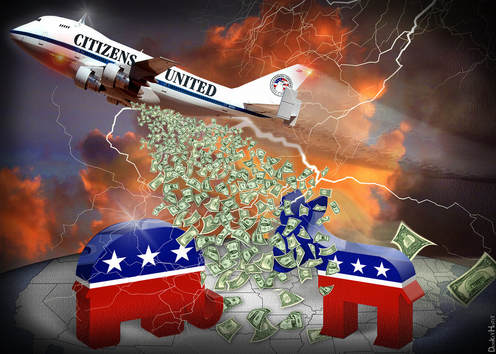 4) FCC inspector general investigating chairman over Sinclair ABOUT: The current FCC chairman, and former Verizon lawyer, is under investigation for potentially conspiring with the conservative leaning broadcaster, Sinclair Media, to benefit the company. EXCERPT: "Rep. Frank Pallone Jr. (D-N.J.), the top Democrat on House Commerce Committee and an outspoken critic of Pai, confirmed the report in a statement and praised the move. "For months I have been trying to get to the bottom of the allegations about Chairman Pai's relationship with Sinclair Broadcasting," Pallone said. "I am particularly concerned about reports that Chairman Pai may have coordinated with Sinclair to time a series of commission actions to benefit the company," he continued. "I am grateful to the FCC's Inspector General that he has decided to take up this important investigation." [...] They pointed to a list of actions the agency has taken under Pai's chairmanship that raised their suspicions. In April of last year, the FCC voted to reinstate a recently-repealed rule that would give broadcast owners a discount to help them stay under the 39-percent ownership limit. And in November, the Republican majority rolled back more ownership restrictions, including one limiting the number of stations a single company can own certain markets." READ MORE: http://thehill.com/policy/technology/374001-fcc-inspector-general-investigating-chairman-over-sinclair-report OUR THOUGHTS: Again, we see that in the halls of power in DC, signs of corruption are nary far away. Considering this is the same FCC chairman appears to be siding with "team profiteers," news of some shady dealings is not especially surprising. Net Neutrality, and otherwise if it is worthwhile to police cyberspace, is a complicated issue because of the unique "utility" that has grown quite sophisticated and ingrained in our daily lives. What is not so nuanced is a federal official conspiring with a private company to write the rules in their favor - picking individual winners and losers for an entire industry sector is not a function of the Federal government. Maryland General Assembly Protocol Calendar In February, The Baltimore Sun published a copy of the MD GA 'protocol calendar', i.e. the calendar of lobbyist sponsored events for members of the Maryland General Assembly. We've since gotten a copy of the updated calendar and have posted it below for public review.
Donate to Represent Maryland and help us keep our anti corruption work going strong. 2/23/2018 Corruption on Tap in MarylandThe Battle between Craft Brew and Big Beer Over the 2017 and 2018 Maryland General Assembly sessions, a spirited debate has unfolded over the future of Maryland’s brewing industry, as state legislators have worked to impose new regulations on the brewing industry, while at the same time, Diageo North America moved forward with plans to open a Guinness brewery in Baltimore County, the first “macrobrewery” in the state. This led to a bill being passed which left craft brewers fuming over requirements that they buy back their own beer from distributors to serve in on-site taprooms, and led the state Comptroller to form a “Reform on Tap Task Force” to explore ways that the state can encourage the burgeoning brewing industry. In the 2018 session, two competing bills were introduced, one by the original sponsors of the 2017 bill, which would look to change the regulations that had been imposed the previous year, and another backed by the Comptrollers office, that would, in many ways, deregulate the brewing industry. Without regard to the specific pros or cons of these different bills, we see this as a prime example of the “pay to play” culture in Annapolis. In a December 2017 op-ed in the Capital Gazette, Economic Matters Committee chairman Dereck Davis wrote in defense of his efforts, “I don’t understand… why a policy debate has turned into accusations of corruption and secrecy." After conducting some research on campaign finance reports, we at Represent Maryland have some thoughts on why that might be the case. The chair of a committee has complete authority over the agenda of that committee, and can unilaterally decide whether a piece of legislation gets a hearing and is voted on in committee, or the chair can essentially put it in a drawer and keep it from ever getting to a vote. In Davis’s case, over the course of his career, from 1995 to the present, he has taken at least $97,125 from the alcohol industry and its current lobbyists. Tellingly, $38,525 of that total has come in the last two years, as the brewery debate has come to the fore. A sampling of his career contributions: -Anheuser Busch & its Lobbyists - $11,100 -MillerCoors & its Lobbyists - $2500 -BK Miller Meats & Liquors - $4000 This particular liquor store is notable as it is a business owned by the Senate President’s family -Buck Distributing - $7500 -Diageo & its Lobbyists - $3450 -Various County and State Licensed Beverage Associations - $24,175 -Licensed Beverage Distributors of MD & its Lobbyists- $3250 -Maryland Beer Wholesalers Assn. and its Lobbyists - $5,525 -Republic National Distributing - $3000 -Total Wine & Its Lobbyists- $13,650 -Katcef Bros. (a beer distribution company) - $2275 -Distilled Spirits Council & its Lobbyists - $2250 Delegate Talmage Branch, who was the lead sponsor on last year’s bill and this year’s attempt to revise it, has received $16,250 from the alcohol industry in the past two years, including $1,750 from Anheuser-Busch and its lobbyists, $2,050 from MillerCoors and its lobbyists, and $1,725 from the Maryland Beer Wholesalers Association, and its lobbyists. Branch is a member of the Alcohol Subcommittee within Economic Matters, and his contributions are typical for members of the subcommittee, which as a whole received $42,610 over the past two years from the alcohol industry and its lobbyists. It seems hard to believe that there would be this much smoke surrounding the officials responsible for alcohol regulation policy, and no pay-to-play fire. This issue illustrates perfectly the flaws in our political system and the tradeoffs of money and power that happen in our state legislature. Represent Maryland stands forcefully for policies that would alleviate these conflicts of interest, including public campaign financing, banning corporate campaign contributions, and banning registered lobbyists from contributing to elected officials’ campaign funds. Watch a video of RepMD Volunteer Bobby B as he pointed out these conflict of interest at the "Reform on Tap" craft brew hearing on Friday, Feb 23 2018. Support Represent Maryland as we tackle the YUGE problem of money in politics! 2/13/2018 Federal Nonsense Round-Up: Mid-Feb 2018WEEK IN REVIEW Week in review compiled by: Shalin M, RepMD Volunteer 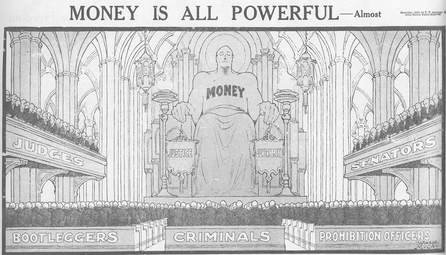 1. (Shalin M.)) Is This the Collusion We Were Waiting For? ABOUT: A loophole in campaign financing appears to have been a "golden vulnerability" for Russian interests to funnel money in support of Trump and other GOP candidates for the 2016 elections EXCERPT: "Here’s another way L.L.C.s could be used: as an intermediary between foreign agents and tax-exempt organizations that are not required by law to disclose their donors, often called dark money groups. Indeed, in July the left-leaning Center for American Progress put out a report warning that loopholes in campaign finance laws make it easy for foreign citizens or governments to influence our elections in precisely this way. [...] Speaking of the F.B.I.’s investigation into the N.R.A., Liz Kennedy, the senior director of Democracy and Government Reform at the center, told me, “If this investigation in fact finds that illegal behavior occurred, this would really be the kind of illegal foreign spending that we were warning would happen.” (During the Obama administration, Senate Democrats twice tried to pass the Disclose Act, which would require greater transparency about the sources of political donations; both times Republicans filibustered.) Of all the so-called dark money groups involved in the 2016 election, none spent more than the N.R.A. The $30 million it expended to elect Trump was three times more than the N.R.A. spent on Mitt Romney’s behalf in the 2012 election. That $30 million, however, is just what the N.R.A. spent on the presidential race. It also backed other candidates, reportedly spending $55 million overall. The organization helped Republicans cement control of Congress. If it did so with Russia’s assistance, the whole party is implicated." READ MORE: https://www.nytimes.com/2018/01/19/opinion/nra-russia-investigation-trump.html OUR THOUGHTS: With greater geopolitical instability, cases of abusing campaign finance are likely only going to get worse without passage of the "Disclosure Act" or similar bill. This will only exacerbated the real voice of the voters if the IRS continues to be under-resourced to address the matter and if campaigns keep getting more expensive. Oh, and knowingly allowing this is quite possibly treason-adjacent behavior! 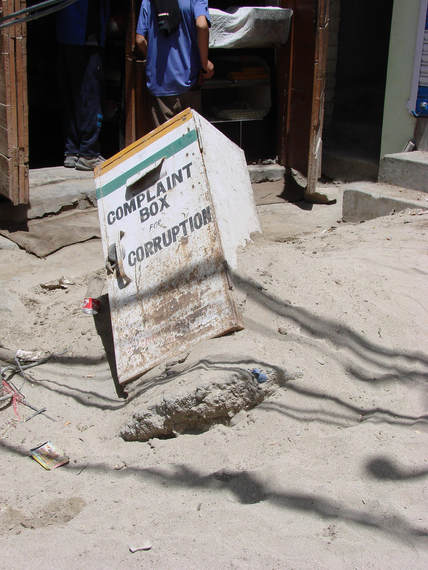 2. (Shalin M.)) Dark Money, Not Russia, May Be the Best Way to Explain Trump's Win: Oh, and the crippling inequality overseen by elites from both parties that has nothing to do with collusion, Robert Mueller, or Moscow. ABOUT: A study from Institute for New Economic Thinking (INET) claims that Russian interference had a much smaller effect than right-wing demographic targeting and domestic based voter suppression. EXCERPT: "Vice: What did that infusion of cash you spotted late in the race actually look like? Where did it come from and where did it go? Prof. Thomas Ferguson: Some of it is through super PACs and other parts of it are through the campaign. But it's pretty obvious what they did. The day after Bannon and Conway took over, the Washington Post printed what they were going to do, which was focus on a few industrial states and other states where they thought they could get white working-class voters. And they did exactly that. They stayed focused on it. They were much better targeted than the Clinton campaign. We all know that. [...] Vice: How do we know we even have a full accounting of the internet mayhem here, though? Prof. F: We don't, and we say that. But Breitbart and all these other [domestic] sources [of right-wing propaganda] were up for years. They were way practiced. And it just doesn't matter if some Kremlin folks... are bouncing back off Steve Bannon's [output] when Bannon and company are doing 24/7 for three years in advance. Vice: You talk a good bit about voter suppression in your paper. Even if we purged the internet of "fake news" and prevented outside interference of any kind, this would still be a problem and maybe even get worse over time, right? Prof. F: I think voter suppression needs more attention. We are way over-invested in what I call, technically, "overdetermined models of voting" [as opposed to] undetermined stuff that actually affects it, including money. There's an imbalance here that is deeply troubling to me." READ MORE: https://www.vice.com/en_us/article/kzn9v3/dark-money-not-russia-may-be-the-best-way-to-explain-trumps-win OUR THOUGHTS: This is an interesting take on the run-up to the 2016 election. Experts on online media and intelligence generally say that that it is quite difficult to gauge how much influence Russian interference had. But the big takeaway of this story seems to be that dark money simply does most of the talking for elections and is associated with voter suppression! :( This is another reason for anti-corruption efforts to ensure dark money comes to light and all voices (i.e. *votes*) are heard. 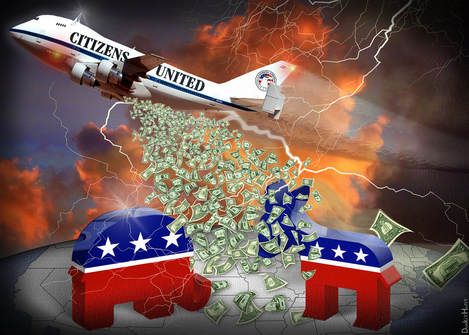 3. (Shalin M.)) Analysis: Lobbying activity at highest level since 2010 ABOUT: Figures on lobbying efforts and lobbyists themselves is up quite a bit over the last year. EXCERPT: "Major trade groups and organizations such as the U.S. Chamber of Commerce and National Association of Realtors again topped the list of top spenders on lobbying, according to the tally from the nonpartisan Center for Responsive Politics. [...] The total spending by groups included in the tally marks a near $200 million increase over 2016's total and is the highest amount spent on lobbying in the tally since 2010, which hit over $3.5 billion. Despite his promises to "drain the swamp" of wealthy interest groups from politics, the first year of President Trump's tenure saw a 6 percent increase in annual lobbying spending compared to the previous year, according to the Center for Responsive Politics. [...] Trump's first year in office also saw the first increase in the number of registered lobbyists since 2007, the Center found, with 11,444 registered lobbyists appearing in quarterly reports to Congress in 2017 compared to 11,169 the previous year." READ MORE: http://thehill.com/business-a-lobbying/business-a-lobbying/371033-lobbying-activity-at-highest-level-since-2010-report OUR THOUGHTS: This sort of trend is taking us backwards and towards more special interest control of the government, not less. The average citizen, especially the generationaly poor, isn't at the heart of nearly any of the lobbyists that have strong influence over congress members. Trumps line about "draining the swamp" is now a verifiable bait and switch - all the more reason anti-corruption efforts are needed!  c4. (Shalin M.)) Congressman removed from ethics committee amid reports he used taxpayer money to settle sexual misconduct complaint ABOUT: Rep. Patrick Meehan of PA has been accused of unwanted repeated advances on a younger female member of his staff. Due to the filed complaint by the staffer, and reported taxpayer money to settle the purported misconduct, he has been removed from the House Ethics Committee he was a part of. EXCERPT: "Rep. Patrick Meehan was removed from the House Ethics Committee on Saturday after The New York Times reported that he had settled a misconduct complaint after a former staffer accused him of making repeated unwanted romantic advances, House Speaker Paul Ryan's office said. It's unclear how much taxpayer money Meehan's office doled out to the former aide, but people familiar with the settlement told The Times that it was thousands of dollars from Meehan's congressional office fund. Ryan told Meehan on Saturday that he should repay the money, Ryan's spokeswoman AshLee Strong told The Times. Meehan, a four-term Republican congressman, represents Pennsylvania's 7th congressional district. Meehan sits on the House Ethics Committee, which is partly responsible for investigating sexual misconduct claims in Congress." READ MORE: http://read.bi/2DuXpKe OUR THOUGHTS: This is yet another case of an abuse of power and taxpayer money. The most incredulous part is that Meehan was a member of an *Ethics Committee* and should have known better. House Speaker Paul Ryan is right that Meehan should repay the taxpayer money used to the settle the issue. This event comes just a couple weeks before the House unanimously passed bills to change response to sexual harassment On Capitol Hill.  5. (Shalin M.)) O’Rourke’s no-PAC campaign paying off against Cruz ABOUT: A "so far, so good" news story about a US Representative from Texas who has switched off the PAC money tap in his race against US Senator Ted Cruz for the Senate seat. EXCERPT: "After voting against the 2014 Farm Bill, El Paso Democrat Beto O’Rourke was asked to apologize. Not to the voters, but to a political action committee (PAC) that donated to his campaign. “At that moment, I just said ‘You know what, I don’t want to take PAC money anymore,” O’Rourke said. “This is crazy.” [...] “We’re far stronger than we would be otherwise,” O’Rourke said. “It is giving more people a reason to contribute and become part of this. They know that their five, 10 or 15 dollars is really going to make a difference. There is no PAC, there are no billionaires. This is really people.” Since 2011, when Cruz began campaigning for the seat he now holds, his campaign has raised $119,383,925, according to September Federal Election Commission data. In the 2012 election cycle, Cruz outraised his opponent, Paul Sadler, more than tenfold." READ MORE: https://www.opensecrets.org/news/2018/01/orourkes-no-pac-campaign-paying-off-against-cruz/ OUR THOUGHTS: This certainly seems like a good news story, but what's better is that the move seems to have really connected with voters and otherwise has given them an outlet for their frustration against special interest money.  5. (Shalin M.)) O’Rourke’s no-PAC campaign paying off against Cruz ABOUT: A "so far, so good" news story about a US Representative from Texas who has switched off the PAC money tap in his race against US Senator Ted Cruz for the Senate seat. EXCERPT: "After voting against the 2014 Farm Bill, El Paso Democrat Beto O’Rourke was asked to apologize. Not to the voters, but to a political action committee (PAC) that donated to his campaign. “At that moment, I just said ‘You know what, I don’t want to take PAC money anymore,” O’Rourke said. “This is crazy.” [...] “We’re far stronger than we would be otherwise,” O’Rourke said. “It is giving more people a reason to contribute and become part of this. They know that their five, 10 or 15 dollars is really going to make a difference. There is no PAC, there are no billionaires. This is really people.” Since 2011, when Cruz began campaigning for the seat he now holds, his campaign has raised $119,383,925, according to September Federal Election Commission data. In the 2012 election cycle, Cruz outraised his opponent, Paul Sadler, more than tenfold." READ MORE: https://www.opensecrets.org/news/2018/01/orourkes-no-pac-campaign-paying-off-against-cruz/ OUR THOUGHTS: This certainly seems like a good news story, but what's better is that the move seems to have really connected with voters and otherwise has given them an outlet for their frustration against special interest money. 2/13/2018 volunteer spotlight: February 2018Shalin M: The man behind Federal Nonsense Round-Up
How did you find out about RepMD?
Through a FB post that popped up in my feed. What made you want to volunteer with RepMD? Their non-partisan do-gooder vibe that was more no-nonsense/pragmatic action oriented about addressing modern corruption in politics. Why do you think getting big money out of politics is important? It presents a terribly inaccurate and skewed understanding of an elected officials constituents and their interests. What is your favorite provision of the AACA and why? To "Immediately disclose political money online." - transparency is amazingly powerful / "Sunlight is the best disinfectant." Besides fighting corruption, what else do you like to do? Teach kids about STEM/STEAM (Science, Technology, Engineering and Math/Science, Technology, Engineering, Art, and Math) What do you think the biggest problem our country is facing is? Voters being adequately informed on facts. Anything else you'd like us to know? Represent Maryland is an excellent way to get involved with the root cause of the problems in our country! WEEK IN REVIEW Week in review compiled by: Shalin M, RepMD Volunteer 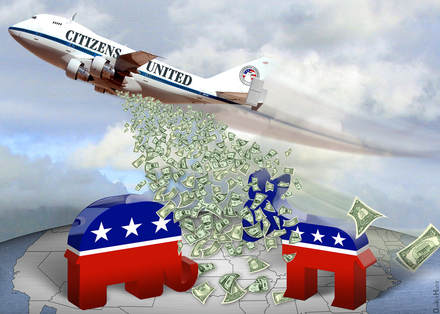 1) Best of 2017: 10 Stories of Money and Politics ABOUT: A Smörgåsbord of corruption examples from 2017 - Enjoy?? :-/ EXCERPT: "Wellspring’s dark money crucial to judicial group, helps others in Trump orbit A single conservative mega donor poured millions into a campaign that blocked Obama’s Supreme Court nominee, Merrick Garland, from filling the empty court seat later filled by Trump’s choice, Neil Gorsuch. CRP broke the story in its analysis of tax documents filed by Judicial Crisis Network, the small nonprofit behind the campaign." READ MORE: https://www.opensecrets.org/news/2017/12/best-of-2017/ OUR THOUGHTS: All the more reason to keep up the fight against these counter-productive behaviors and actors! 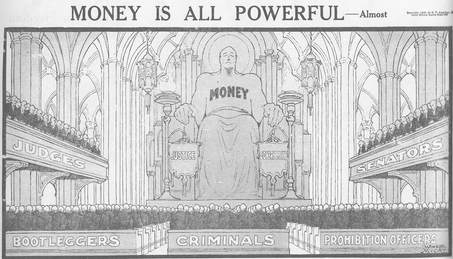 2.) Tax lobbyists donated millions to members of Congress ABOUT: During the tax reform "process" in the Fall/Winter 2017, lobbyists were busy working their influence with influential congressional members - Republicans and Democrats. EXCERPT: "Lobbyists working on issues related to taxes donated $9.6 million to members of Congress during the first nine months of 2017. Among the 11,078 total lobbyists who have registered and actively lobbied so far in 2017, about 58 percent – or 6,421 – lobbied on the issue of taxes, according to quarterly disclosure forms filed between January and September. Almost a quarter of these “tax lobbyists” – or 1,476 – made political contributions. Their combined average contribution during the first three quarters of the 2018 cycle was $6,520." READ MORE: https://www.opensecrets.org/news/2017/12/tax-lobbyists-contributions/ OUR THOUGHTS: It is particularly interesting to see how the split of monies was accepted by members of different parties. Democratic congressional members in predominately red/purple states accepted lots of funds from the tax lobbyists. Although few Democrats voted for the recently passed tax bill, it still shows influence for loopholes, waivers, exceptions, etc. for various industries. 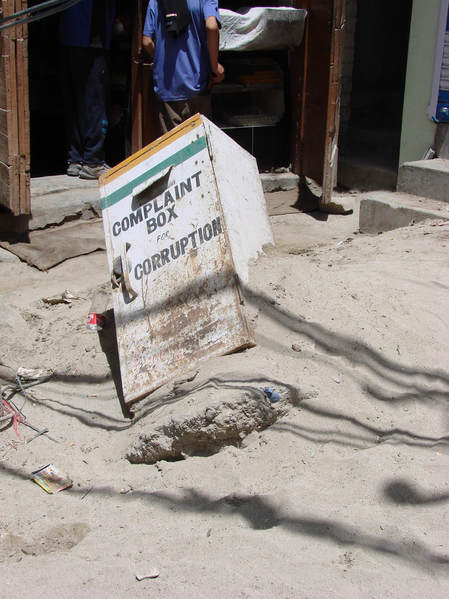 3.) Why the government shutdown actually costs money ABOUT: It's not a simple as flicking off a light switch and flicking it on later! EXCERPT: "Budget experts and past analyses by the White House budget office have found that a shutdown hurts the U.S.’ finances in a number of ways. Furloughed workers almost always get paid retroactively for the time they were out—which means taxpayers are laying out money without getting any work in return. Museums and national parks can’t collect fees and revenues from other sources like gift shops. Perhaps most importantly, federal workers spend thousands of cumulative work hours preparing for the event and recovering from it, literally shutting down their systems and then restarting them once the government reopens—paid work that is utterly unnecessary to the normal business of running the country, and sucks time away from safety inspections, or reviewing research grants, or whatever their actual responsibilities are. Quantifying the exact cost to the government is difficult, in part because every shutdown is different. Between November 1995 and January 1996, the government shut down twice for a total of 27 days as Democrats and Republicans clashed over Medicare funding, among other issues. A subsequent analysis conducted by the White House’s Office of Management and Budget estimated that both shutdowns together cost the government $1.4 billion—more than $2 billion today after adjusting for inflation. " READ MORE: https://www.politico.com/agenda/story/2018/01/21/why-the-government-shutdown-actually-costs-money-000624 OUR THOUGHTS: The brinksmanship over the funding of the government has cost the taxpayers in some very real ways. Although the markets somewhat shrugged it off as a "well, this is what's normal now", the uncertainty cost real money to real people. This is incredibly irresponsible and disappointing and only seems to get worse as more corruption is allowed. 1/17/2018 VOLUNTEER SPOTLIGHT: JANUARY 2018bOBBY b: OUR GO TO GUY FOR UNDERSTANDING LOCAL LAWS
How did you find out about RepMD?
A friend mentioned he'd gotten involved and it sounded interesting so I searched them out. What made you want to volunteer with RepMD? I liked the grassroots approach to taking on this massive issue that is deeply intertwined with all our other problems. Why do you think getting big money out of politics is important? Because this is the problem we have to solve before we can seriously address virtually any other problems within our society. What is your favorite provision of the AACA and why? Public campaign financing, because it addresses the problem of corruption most directly. Besides fighting corruption, what else do you like to do? Spend time with my family, and home brew beer. What do you think the biggest problem our country is facing is? Our government has been warped to protect and entrench those who are already powerful, while ignoring regular people. Anything else you'd like us to know? A couple favorite quotes I've found helpful when helping RepMD move the needle on some important work: - Work the problem, not the person. - Find error, not blame. :-) Week in ReviewWeek in review compiled by: Shalin M, RepMD Volunteer, Baltimore City, Laura H, RepMD Volunteer, St Michael's, Lisa M, RepMD Volunteer, Baltimore City & Cristi D, RepMD Chair.
|
Archives
October 2020
CategoriesAll Action Alert Annapolis MD Baltimore County Big Banks Candidate Endorsment Corruption DNC Scandal Drugs Elections EPA FCC Federal Nonsense Get Big Money Out Greenbelt MD Imran Awan Maryland Politics Military Money Laundering Monsanto Net Neutrality President Trump Prison For Profit Public Election Funds Puerto Rico Represent Maryland Sexual Harrasment Sinclair Broadcasting Small Money Certification Takoma Park MD Tax Payer Money Trump Volunteer Spotlight Voter Suppression Wall Street Week In Review |
||||||||||||||||||
|
© COPYRIGHT 2020 ALL RIGHTS RESERVED.
Paid for by Represent Maryland PAC. Authorized by B Tabatabai, Treasurer Not affiliated with any candidates, campaigns or parties. |

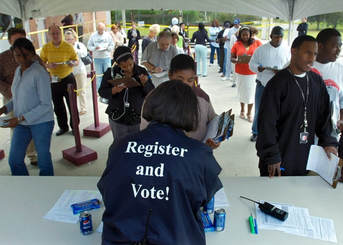
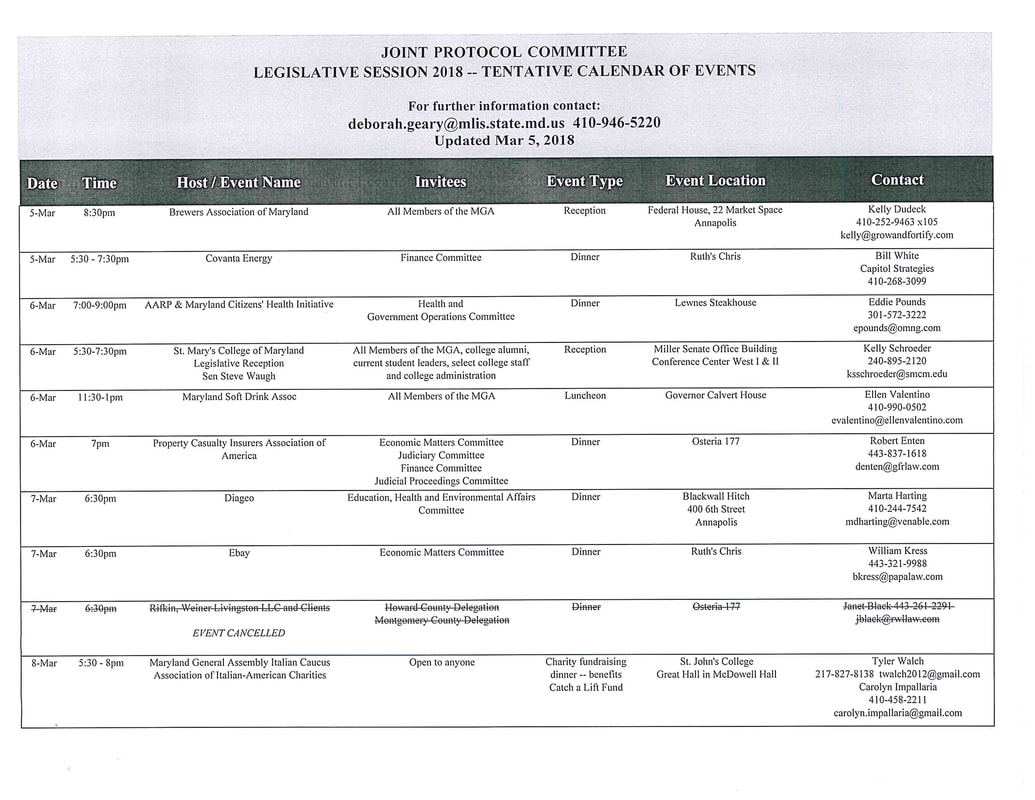
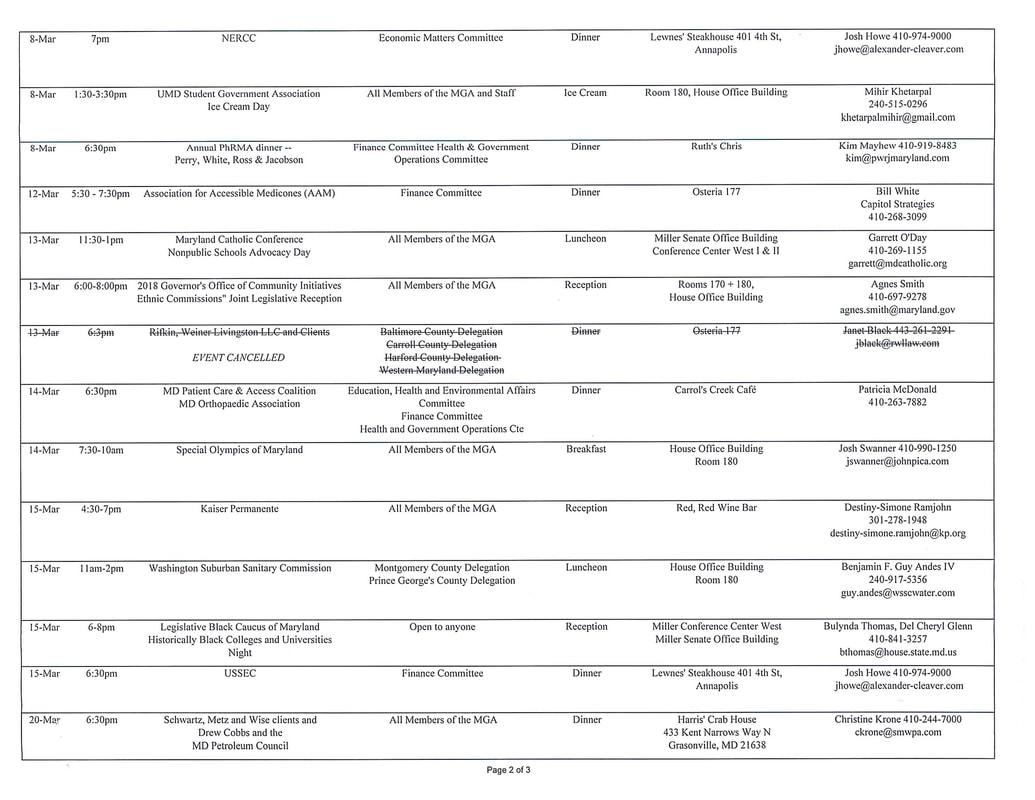
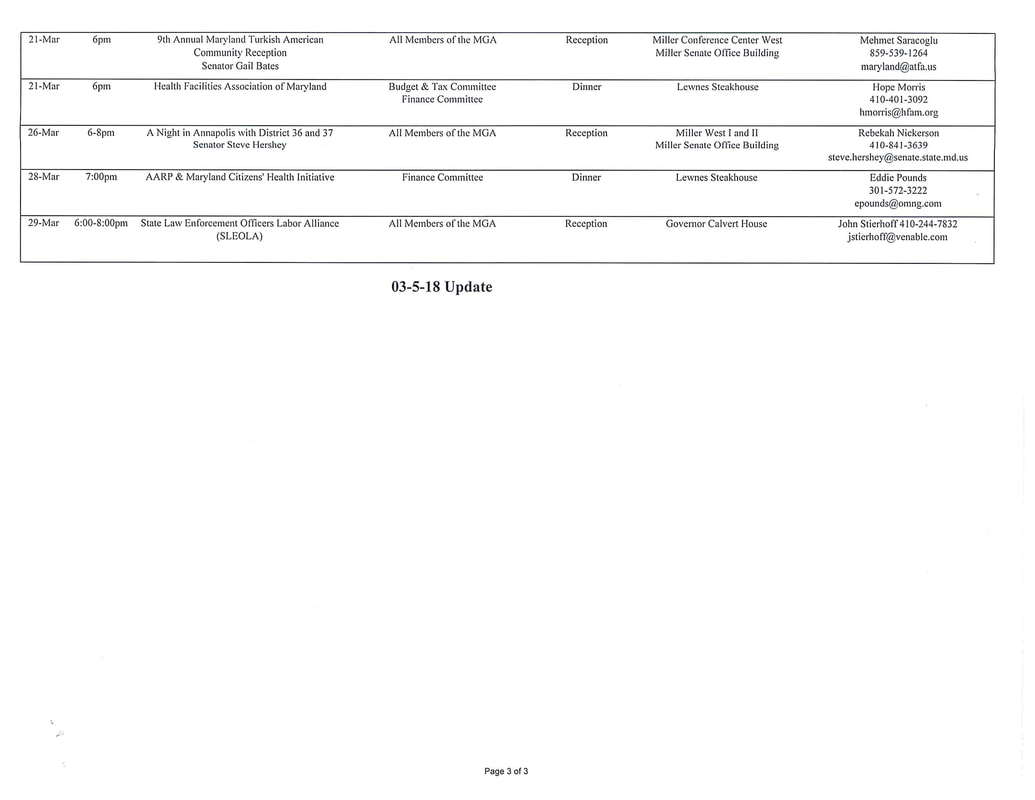
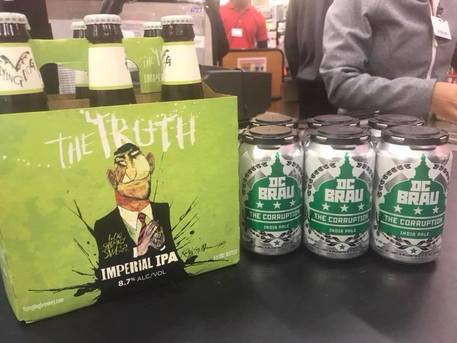



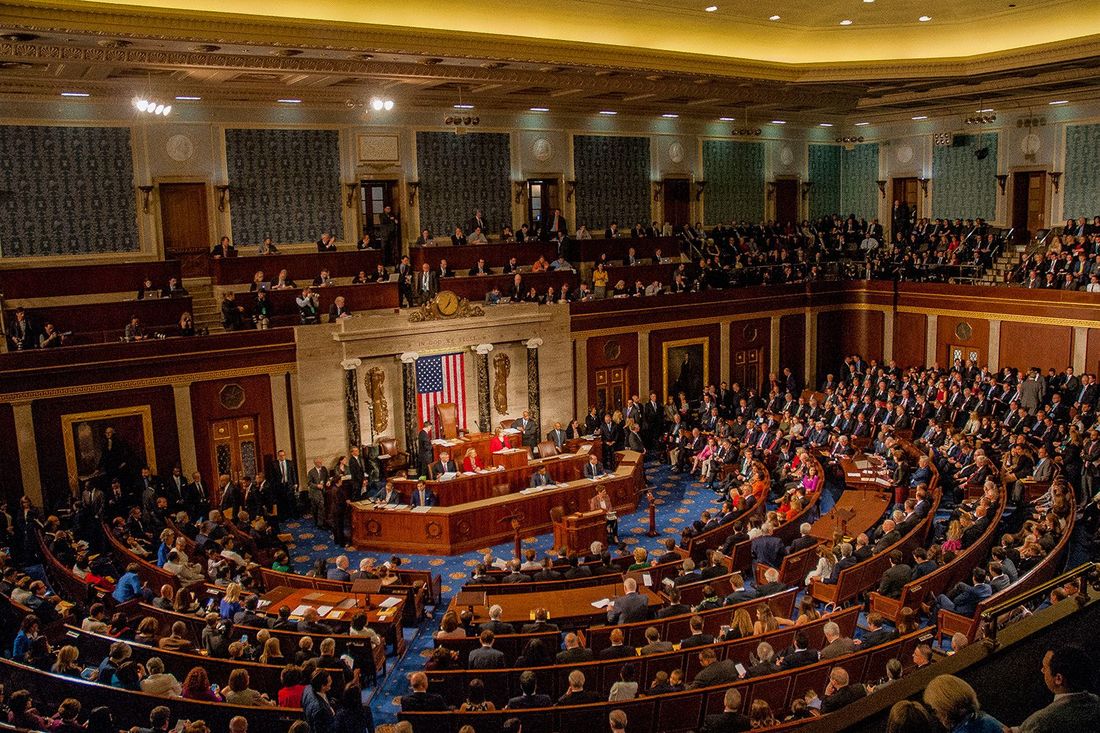


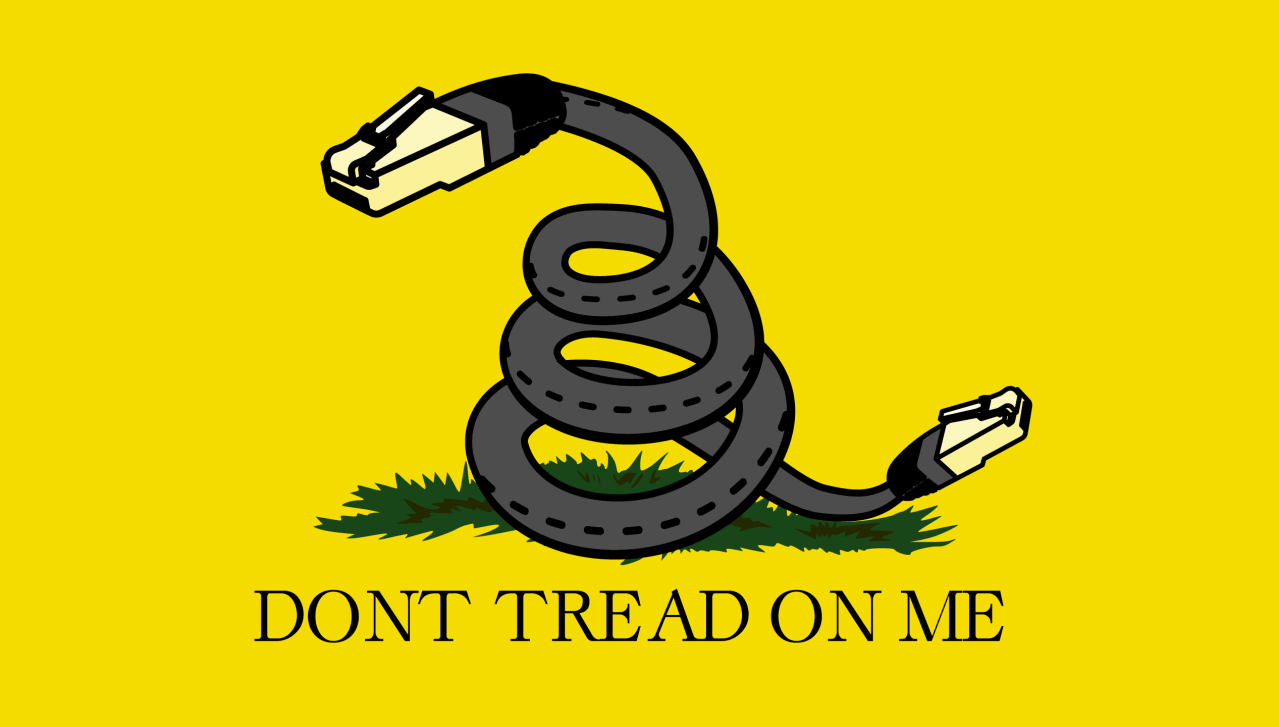
 RSS Feed
RSS Feed